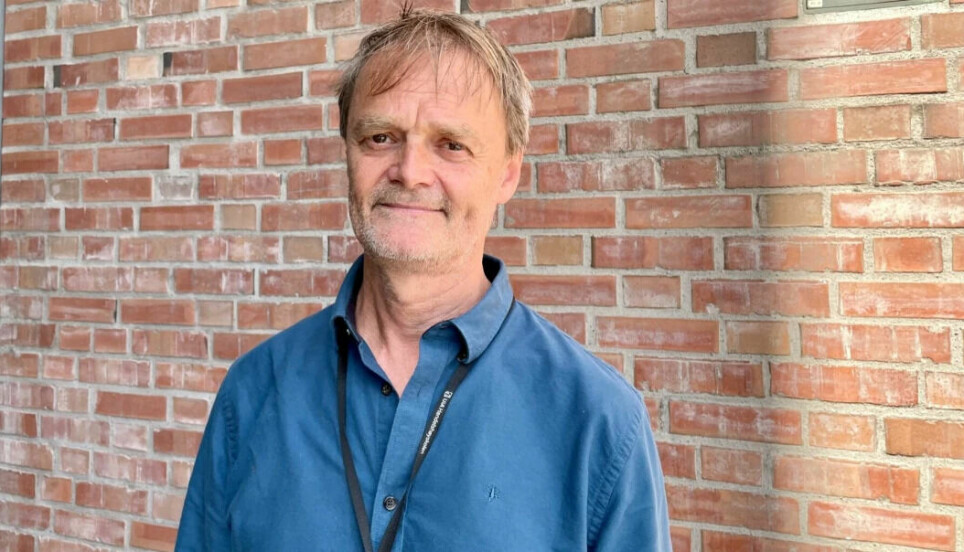
Children's school results are more related to parents' income than before
“This may indicate that kindergartens and schools in Norway are not able to even out social differences well enough,” researcher believes.
Norway is what is called a mobile society. This means that everyone has fairly equal opportunities to do better – or worse – than their parents.
However, a study recently presented at the IAREP conference at the University of Agder, shows disappointing results.
“For the most disadvantaged children, mobility has been declining,” economist and senior researcher Knut Røed at the Frisch Center tells sciencenorway.no.
The study is part of an ongoing research project that he is working on in collaboration with senior researcher Simen Markussen at the Frisch Center.
At the IAREP conference, researchers from around the world presented studies on economic psychology.
The ideal: Everyone can succeed regardless of parental status
For economists who are concerned with equal opportunities for all, the ideal is the most mobile society possible.
In a completely mobile society, there is little connection between the parents' income and the children's education and subsequent income.
“In such a case, everyone has reasonably good opportunities to succeed regardless of their parents' position,” Røed explains.
Norway is still a mobile society, compared to most other countries. But it seems to be going in the wrong direction.
At least for those who have grown up in the poorest 10 per cent of families.
“There are no dramatic changes, but there is a clear trend,” Røed says.
The post-war generation was mobile
In previous studies, researchers have seen that children from the poorest families have lagged behind in the labour market.
This has resulted in worse incomes, compared to their peers.
Researchers have looked at the cohorts of those born from the 1950s to the late 1970s. They have compared the children’s incomes with their parents’.
A society with high mobility is characterised by the fact that the parents' income predicts little about how well the children will do when they grow up.
The researchers have documented that mobility in Norway is high. However, it has shown a slightly declining trend for cohorts born after 1950.
This is especially true for those children whose parents have the lowest incomes.
Measure school results against parents' income
To measure the mobility of today's young people between generations, Røed and Markussen have instead looked at the connection between the parents' income rank and the children's secondary school grades.
The young people in this study were born between 1990 and 2002. They are currently between the ages of 20 and 32 years.
“Many of these have not managed to secure an income yet. Therefore, we have instead looked at how they are ranked based on the average in primary school grades,” Røed explains.
The researchers also show that there is a clear connection between primary school grades and income as an adult.
The poorest children lag behind
With low mobility, the children will end up with about the same as their parents. On the other hand, in a society with high mobility, children have the potential to end up anywhere.
“Overall, there is still a reduction in mobility, compared to before,” says Røed.
Children born into the very poorest families have lagged somewhat behind. The middle class has instead become slightly more affluent.
A lot of care moved over to the community
The researchers were a little surprised by the results.
“In recent decades, much of the care has moved from the home to the community. We have had an explosion in the proportion of children who go to kindergarten,” Røed points out.
Kindergartens reduce the importance of parents' income. Thus, we expected increased mobility, he explains.
But they did not find that.
He believes the explanation for this paradox is that something else is pulling in the opposite direction.
Education has become more important
During the same period, education has become even more important to do well and get a well-paid job.
“It may be that parents in the highest income groups are more involved in their children's schoolwork and education. They help more with homework and maybe push their children more,” says Røed.
In any case, it seems that society is unable to compensate for what parents in the higher income groups bring to their children in the form of follow-up.
Parents today spend more time together with their children than before. They also do more activities together.
It is possible that this has such a great effect on the children who come from high-income families, that the poor children lag behind, according to Røed.
Does immigration play a role?
Many more people in their twenties and thirties have a background as second-, third- or fourth-generation immigrants than before.
What role has this played for mobility, such as Norwegian language comprehension?
“Immigration is a factor. Immigrants are overrepresented amongst low-income parents. And many of their children have struggled to get a good education,” says Røed.
But the picture is nuanced. In some immigrant communities, many second- and third-generation immigrants take higher education, in contrast to Norwegians from the same income background.
“They are at both ends of the scale. Many immigrant parents are very ambitious on behalf of their children and expect them to become doctors, lawyers or engineers,” says Røed.
———
Translated by Alette Bjordal Gjellesvik.
Read the Norwegian version of this article on forskning.no
































